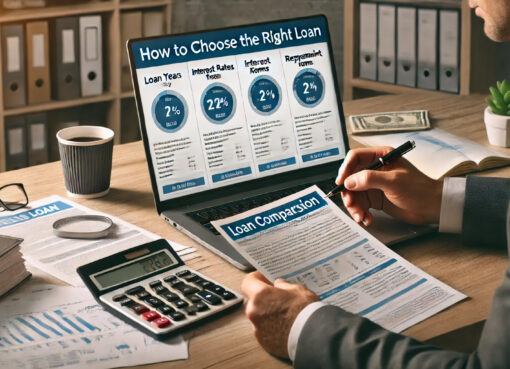What Is Personal Loan Interest Rate

Personal loan interest rate are a popular financial tool that individuals utilize for a variety of purposes, ranging from debt consolidation and home improvements to unexpected expenses or fulfilling dreams. When considering a personal loan, it is essential to understand the concept of interest rates. In this article, we will delve into what personal loan interest rates are, how they are determined, and why they matter to borrowers.
Understanding Personal Loan Interest Rate:
Personal loan interest rate refers to the percentage of the loan amount that borrowers are charged by the lender as compensation for lending money. It is an additional cost incurred by borrowers in exchange for the financial assistance provided by the lender. This interest is typically calculated annually but may be compounded at different intervals, depending on the terms of the loan.
Factors Influencing Personal Loan Interest Rate:
Several factors play a crucial role in determining the interest rate offered to borrowers. These factors include:
a. Credit Score and History: Lenders assess the creditworthiness of borrowers by evaluating their credit scores and credit history. Those with higher credit scores are often offered lower interest rates, as they are considered less risky borrowers.
b. Loan Amount and Repayment Term: The loan amount and the repayment term also impact the interest rate. Generally, larger loan amounts or longer repayment terms may result in higher interest rates due to increased perceived risk for the lender.
c. Economic Conditions and Market Trends: External factors, such as the state of the economy, inflation rates, and market trends, can influence interest rates. During periods of economic stability and low inflation, interest rates tend to be lower.
d. Lender’s Policies and Risk Assessment: Each lender has its own lending policies and risk assessment methods, which may result in variations in interest rates. Different lenders may prioritize different factors when determining interest rates.

Types of Personal Loan Interest Rates:
a. Fixed Interest Rates: With fixed interest rates, the rate remains constant throughout the loan term. Borrowers have the advantage of knowing exactly how much they need to pay each month, making it easier to budget. However, fixed rates may be higher initially compared to variable rates.
b. Variable Interest Rates: Variable interest rates can fluctuate over time based on market conditions or other factors. Borrowers may experience changes in their monthly payments, as the interest rate adjusts periodically. Variable rates can be advantageous if interest rates decrease, but they also carry the risk of increasing over time.
c. Hybrid or Adjustable Interest Rates: Hybrid interest rates combine elements of both fixed and variable rates. These rates are fixed for an initial period and then transition to a variable rate. Borrowers benefit from the stability of a fixed rate initially and the potential for lower rates if the variable rate decreases later.
How Personal Loan Interest Rates Affect Borrowers:
a. Affordability and Monthly Payments: Interest rates directly impact the affordability of a personal loan. Higher interest rates result in higher monthly payments, potentially straining your budget. Lower interest rates, on the other hand, reduce monthly obligations and provide greater financial flexibility.
b. Total Cost of Borrowing: Personal loan interest rates significantly impact the total cost of borrowing. A higher interest rate increases the overall amount you must repay, while a lower rate saves you money over the loan term.
c. Impact on Financial Planning and Budgeting: Personal loan interest rates should be considered when developing your financial plan. They influence your ability to achieve other financial goals, affect your debt-to-income ratio, and impact your overall financial stability.
Tips for Getting the Best Personal Loan Interest Rate:
a. Improve Credit Score and Creditworthiness: Enhancing your credit score by making timely payments and reducing outstanding debts can improve your chances of
What Is Interest Rate For Personal Loan
When it comes to personal loans, one crucial factor to consider is the interest rate. Interest rates play a significant role in determining the cost of borrowing and affect your monthly payments and overall loan affordability. In this article, we will delve into the concept of interest rates for personal loans, how they are calculated, and the factors that influence them. By understanding these key aspects, you can make informed decisions when seeking a personal loan.
Defining Personal Loan Interest Rates:
Personal loan interest rates represent the additional cost you pay for borrowing money. Lenders charge interest as a percentage of the loan amount, typically calculated on an annual basis. It’s important to note that interest rates can vary from lender to lender and are influenced by several factors.
Factors Influencing Personal Loan Interest Rates:
a. Credit Score and Credit History:
Your creditworthiness is a major determinant of the interest rate you’ll be offered. Lenders assess your credit score and credit history to evaluate your ability to repay the loan. A higher credit score and a positive credit history generally result in lower interest rates, as you are perceived as a lower risk borrower.
b. Loan Amount and Repayment Term:
The loan amount and repayment term also impact interest rates. Generally, larger loan amounts or longer repayment terms can lead to higher interest rates. This is because lenders consider larger loans or longer terms to be riskier, as it increases the likelihood of default or repayment delays.
c. Economic Conditions and Market Trends:
Interest rates are influenced by economic conditions and market trends. During periods of economic stability and low inflation, interest rates tend to be lower. On the other hand, in times of economic uncertainty or inflationary pressures, interest rates may rise.
d. Lender’s Policies and Risk Assessment:
Each lender has its own set of policies and risk assessment methods. They consider various factors, including their internal criteria and evaluation of your loan application, to determine the interest rate they offer. Different lenders may have varying rates based on their risk appetite and lending strategies.
Types of Interest Rates for Personal Loans:
a. Fixed Interest Rates:
With fixed interest rates, the rate remains the same throughout the loan term. This provides stability, as your monthly payments remain consistent. Fixed rates are particularly beneficial when interest rates are low, as they protect you from potential rate increases in the future.
b. Variable Interest Rates:
Variable interest rates fluctuate over time based on market conditions. They are often tied to a benchmark rate, such as the prime rate or the LIBOR. When the benchmark rate changes, your interest rate will adjust accordingly. Variable rates can be advantageous when interest rates are expected to decrease, but they also carry the risk of increasing payments if rates rise.
c. Hybrid or Adjustable Interest Rates:
Hybrid or adjustable interest rates combine elements of both fixed and variable rates. Typically, the rate is fixed for an initial period, providing stability and predictable payments. After the initial period, the rate transitions to a variable rate. This type of rate structure offers a balance between stability and the potential for lower rates in the future.
The Impact of Interest Rates on Borrowers:
Interest rates directly affect the affordability and cost of borrowing for personal loans. Higher interest rates result in higher monthly payments, which may strain your budget. Moreover, higher interest rates also increase the overall cost of borrowing over the loan term. Understanding the impact of interest rates allows you to assess the long-term financial implications of taking out a personal loan.
Personal loan interest rate
When considering a personal loan, understanding interest rates is essential for making informed financial decisions. By knowing how interest rates are calculated, the factors influencing them, and the different types of rates available, you can evaluate loan offers, choose the most.




